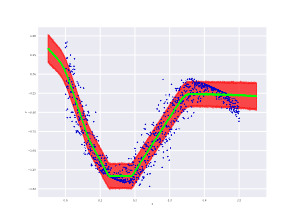Neural networks are lately more and more often being used in the context of data-driven control, as an approximate model of the true system dynamics. Model Predictive Control (MPC) adopts this practise leading to neural MPC strategies. This raises a question of whether the trained neural network has converged and generalized in a way that the learned model encapsulates an accurate approximation of the true dynamic model of the system, thus making it a reliable choice for model-based control, especially for disturbed and uncertain systems. To tackle that, we propose Dropout MPC, a novel sampling-based ensemble neural MPC algorithm that employs the Monte-Carlo dropout technique on the learned system model. The closed loop is based on an ensemble of predictive controllers, that are used simultaneously at each time-step for trajectory optimization. Each member of the ensemble influences the control input, based on a weighted voting scheme, thus by employing different realizations of the learned system dynamics, neural control becomes more reliable by design. An additional strength of the method is that it offers by design a way to estimate future uncertainty, leading to cautious control. While the method aims in general at uncertain systems with complex dynamics, where models derived from first principles are hard to infer, to showcase the application we utilize data gathered in the laboratory from a real mobile manipulator and employ the proposed algorithm for the navigation of the robot in simulation.
翻译:暂无翻译








